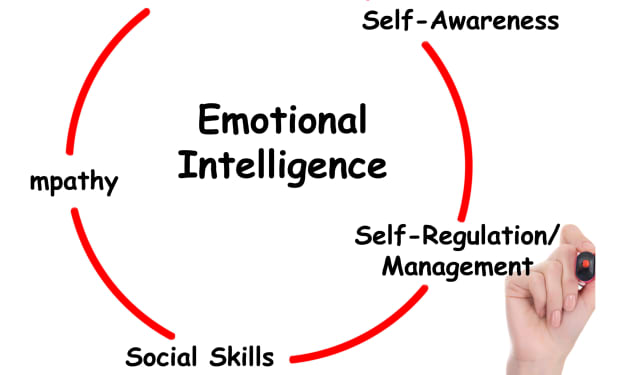The Challenges and Opportunities of Upskilling and Reskilling in a Rapidly Changing Job Market
Bridging the Skills Gap: Overcoming Challenges in Upskilling and Reskilling

The Challenges and Opportunities of Upskilling and Reskilling in a Rapidly Changing Job Market
In today's rapidly changing job market, upskilling and reskilling have become critical for individuals to stay relevant and thrive in their careers. The advancements in technology, automation, and evolving market demands require professionals to continuously acquire new skills and adapt to new roles. This article explores the challenges and opportunities of upskilling and reskilling, providing examples and advice for individuals navigating this dynamic landscape.
The Challenge of Technological Disruption
Technological advancements, such as artificial intelligence and robotics, are reshaping industries and displacing certain job roles. However, they also create new opportunities in emerging fields. For example, automation may replace routine tasks but also opens doors to positions focused on managing and leveraging these technologies. By upskilling in areas like data analysis, machine learning, or digital marketing, individuals can position themselves for the new job opportunities created by technological disruption.
The Importance of Lifelong Learning
Gone are the days when education and skills training were considered a one-time investment. Lifelong learning has become essential for professionals to adapt to changing job requirements. Pursuing continuous education, attending workshops, participating in online courses, or earning industry certifications are effective ways to upskill and reskill. For instance, an accountant could acquire new skills in data analytics to align with the increasing demand for financial analysis using advanced tools.
Bridging the Skills Gap
One of the challenges individuals face when upskilling or reskilling is the existing skills gap. It refers to the mismatch between the skills possessed by the workforce and the skills demanded by employers. Collaboration between educational institutions, employers, and government agencies is crucial to bridge this gap. Programs like apprenticeships, internships, or partnerships between companies and educational institutions can help individuals gain practical skills and relevant work experience.
Embracing Remote Learning and Online Resources
The digital age has brought tremendous opportunities for upskilling and reskilling through online resources and remote learning platforms. Massive Open Online Courses (MOOCs), webinars, and e-learning platforms provide convenient and accessible ways to acquire new knowledge and skills. Professionals can take advantage of these resources to learn at their own pace and tailor their learning journeys to their specific career goals.
The Role of Soft Skills
While technical skills are important, the demand for soft skills such as communication, adaptability, and critical thinking is also increasing. Upskilling in areas like leadership, teamwork, and emotional intelligence can complement technical expertise and enhance career prospects. For example, a software developer who develops effective communication and collaboration skills can excel in project management roles.
Leveraging Professional Networks and Mentorship
Building a strong professional network and seeking mentorship can provide valuable guidance and opportunities for upskilling and reskilling. Engaging with industry associations, attending networking events, or joining online communities allows individuals to connect with like-minded professionals, exchange knowledge, and explore potential career paths. Mentors can offer insights, share experiences, and provide advice on navigating the complexities of the job market.
Adaptability and Agility
In a rapidly changing job market, adaptability and agility are essential. Individuals must be willing to embrace change, be open to learning new skills, and be agile in adjusting their career paths. Being proactive, staying informed about industry trends, and being willing to take calculated risks can help individuals seize new opportunities and thrive in the evolving job market.
Emphasizing Transferable Skills
When considering upskilling or reskilling, it's valuable to identify transferable skills. These are skills that can be applied across different roles or industries. For instance, project management, problem-solving, or leadership skills are transferable and can be leveraged in various professional settings. Recognizing and highlighting these skills can enhance career prospects and facilitate a smoother transition into new roles.
Seeking Employer Support
Employers have a vested interest in a skilled and adaptable workforce. Many organizations offer training and development programs to support their employees upskilling and reskilling efforts. Individuals should explore these opportunities and communicate their career goals and aspirations to their employers. Taking advantage of employer-sponsored programs or mentorship initiatives can accelerate professional growth and increase job satisfaction.
In conclusion, upskilling and reskilling are no longer optional but essential for navigating a rapidly changing job market. The challenges presented by technological disruption and evolving skill requirements are significant, but so are the opportunities for growth and career advancement. By embracing lifelong learning, leveraging online resources, developing transferable skills, and seeking support from networks and employers, individuals can adapt, thrive, and seize the vast possibilities available in today's dynamic job market.






Comments
There are no comments for this story
Be the first to respond and start the conversation.